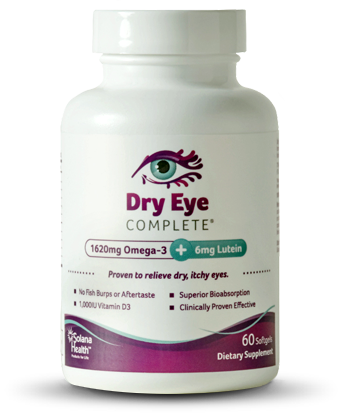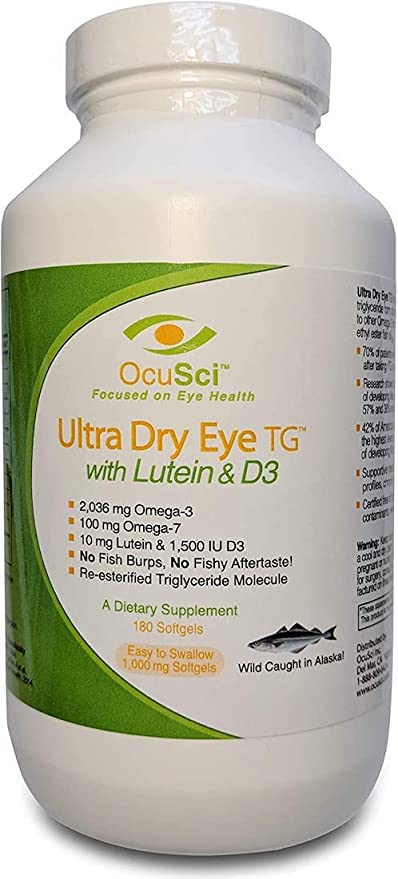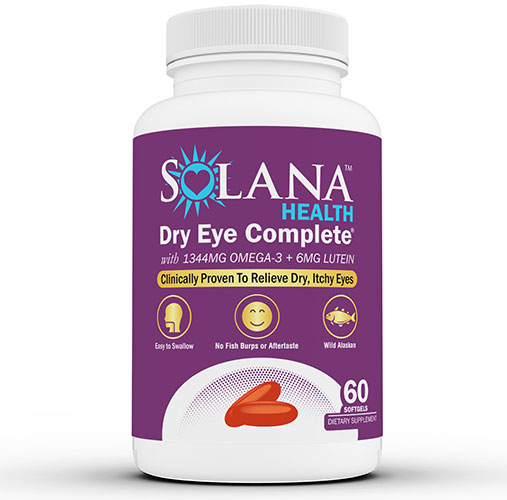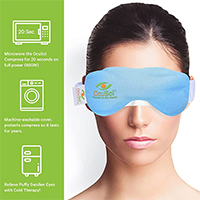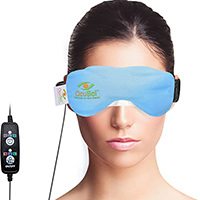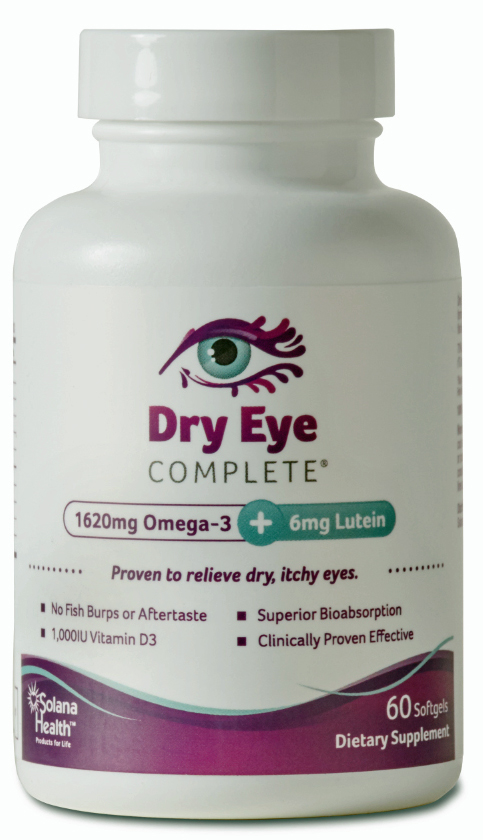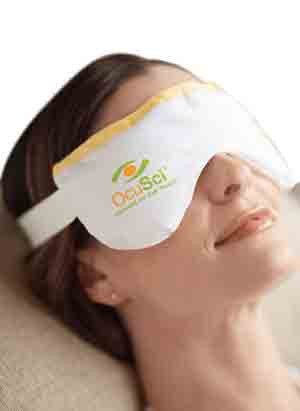It is likely, if you have macular degeneration that you will have heard that there are vitamins and diets out there that can reverse and cure the condition. Unfortunately, this is absolutely not true. There is simply no cure for macular degeneration. However, there is a lot of evidence to show that there are significant links between diet and the eyes. Furthermore, there is also significant scientific evidence that certain supplements can slow down the progression of macular degeneration.
What Is Age-Related Macular Degeneration (AMD)?
AMD is most common in the elderly. It affects the macula’s cells, which are found in the center of your retina, which is at the back of your eye. When these cells stop to work, your central vision starts to deteriorate. Your central vision is needed for many everyday tasks, including driving, reading, writing, and recognizing faces.
Two types of AMD exist. In dry AMD, progression of the cell deterioration is very slow. With wet AMD, your eyes try to fix the cells by growing new blood vessels. These vessels are very weak, however, causing them to leak and to create permanent scars on the macula. Wet AMD is much rarer. Its progression is also very quick and it can lead to full central vision loss.
No cure currently exists for either wet or dry AMD. Nevertheless, we know that there are plenty of things that we can do in order to slow progression down. Let’s take a closer look.
AMD Facts
- If you consume plenty of fruits and vegetables, you are less likely to develop AMD. This is particularly true if you eat plenty of dark, leafy greens.
- If you eat fatty fish at least three times per week, you are less likely to develop AMD.
- If you eat a lot of saturated fats, you are more likely to develop AMD.
AREDS
The AREDS (Age-Related Eye Disease Study) was commissioned by the National Eye Institute of the National Institutes of Health. It demonstrated that some people could benefit from taking vitamins C and E, zinc, beta-carotene and copper. However, they also found that the chance of developing lung cancer was greater in people who took these supplements, particularly if they also had some of the risk factors for lung cancer. As a result, they started changing the AREDS formulation. First of all, they added omega-3, which are the fatty acids found in fish. They then also added lutein and zeaxanthin, which are carotenoids present in dark, leafy vegetables. The results were impressive:
- Progression of AMD was not lowered by adding beta-carotene.
- Progression of AMD was not lowered by adding omega-3.
- AREDS was found to be equally successful with less zinc.
- People with lutein and zeaxanthin deficiencies experienced greater benefits from taking the AREDS supplementation.
- The greatest benefits were experienced with lutein and zeaxanthin and without beta-carotene.
The AREDS study took 10 years to complete. It involved some 3,500 individuals and it also looked specifically at levels of supplements. Their first recommendation was:
- 400 IU of vitamin E
- 500 mg of vitamin C
- 80 mg of zinc
- 15 mg of beta-carotene
- 2 mg of copper
The formula, however, didn’t prevent AMD from happening. Additionally, it was only effective in people who already had intermediate AMD. In these people, however, progression was slowed by as much as 25% and vision loss was slowed by 19%.
As stated earlier, further research became available, which led to changes to the original AREDS formula. A second, five year study happened, which was AREDS 2. Specifically, this looked at lowering zinc and getting rid of the beta-carotene, as this can increase the chance of lung cancer, particularly in smokers.
AREDS 2
The formulation for AREDS 2 is similar to the first AREDS, with some slight modifications. It is now:
- 400 IU of vitamin E
- 500 mg of vitamin C
- 2 mg of copper
- 80 mg of zin
- 2 mg of zeaxanthin
- 10 mg of lutein
Other Supplements
Since the two AREDS studies, various manufacturers have started to release supplements claiming similar results. The table below shows the evidence is highly inconclusive with these supplements. Of particular importance is that AREDS and AREDS 2 are very high dosage supplements. This is why they should not be taken without the advice of a medical professional. You must also inform them about whether or not you are taking any other supplements, as these could negatively affect each other, or lead to you overdosing.
| Supplement | Evidence |
| Astaxanthin | Insufficient evidence |
| Coenzyme Q-10 | Possibly effective |
| Beta-carotene | Possibly effective |
| EPA | Possibly ineffective |
| DHA | Possibly effective |
| Folic acid | Possibly effective |
| Fish oil | Possibly effective |
| Lutein | Possible effective |
| Ginko | Insufficient evidence |
| Vitamin B6 (Pyridoxine) | Possibly effective |
| Melatonin | Insufficient evidence |
| Taurine | Insufficient evidence |
| Shark cartilage | Insufficient evidence |
| Vitamin B12 | Possibly effective |
| Vinpocetine | Insufficient evidence |
| Vitamin E | Possibly ineffective |
| Zinc | Possibly effective |
Which Supplements Should I Take?
The AREDS studies were highly conclusive. However, supplement manufacturers are often more interested in making money than what they are in providing health. It is very important, therefore, to take the time to actually look at the supplement facts to make sure it contains the right ingredients at the right levels. Additionally, you need to make sure that the ingredients are as natural as possible. Finally, if you are a vegetarian or vegan, you need to check that the product is suitable for your dietary needs.
The table below compares the different brands that exist on the market today.
| Product Name | Ingredients | Comments |
| VisiVite AREDS2 Gold PLUS | · 137% more lutein and 50% zeaxanthin than AREDS 2 formulation
· Zinc · Bilberry Alpha lipoic acid Grapeseed extract Selenium L-glutathione Vitamins B6, C and E |
· Seen as best product out there.
· Has added antioxidants, thereby increasing overall health benefits. · Suitable for vegetarians · Naturally sourced ingredients. |
| VisiVite AREDS 2 Select | · Zeaxanthin
· Lutein · Vitamins C and E Zinc |
· Original AREDS 2 formulation with added zinc.
· Vegetarian capsules. · Naturally sourced ingredients. |
| MAxiVision Ocular Formula | · Zeaxanthin
· Lutein · Vitamins C and E Zinc · Antioxidants |
· Original AREDS 2 formulation with added zinc.
· “Proprietary blend”, which means full ingredients and dosage is a bit unclear. · Contains fish and soy. |
| Pure Encapsulations Eye Protect Basics | · Zeaxanthin
· Lutein · Vitamins C and E Zinc |
· Original AREDS 2 formulation with added zinc.
· Vegetarian capsules. |
| Preservision AREDS 2 | · Zeaxanthin
· Lutein · Vitamins C and E Zinc |
· Original AREDS 2 formulation with added vitamin E. Vitamin E is synthetic.
· Contains artificial colors. · Gelatin soft gels, so not suitable for vegetarians. |
| EyePromise Restore | · Lutein
· Zeaxanthin · 250 mg ethyl ester omega 3 · Zinc · Alpha lipoic acid · Vitamins C, D3 and E |
· Lutein at 40% of AREDS 2.
· Zeaxanthin at 300% of AREDS 2. · Ethyl ester omega 3 has no proven benefits in AMD. |
| Macular Protect | · Zeaxanthin
· Lutein · Folate · Zinc · Vitamins B6, B12, C and E |
· Original AREDS 2 formula with added vitamin C.
· Gelatin capsules so not suitable for vegetarians. |
| Viteyes AREDS 2 | · Zeaxanthin
· Lutein · Vitamins C and E · Zinc |
· Economical.
· AREDS 2 formulation with added zinc. · Gelatin capsules so not suitable for vegetarians. · Contains fish. |
| Loptriad Visionary | · Zeaxanthin
· Lutein · Ethyl ester fish oil · Vitamins C and E |
· Affordable.
· AREDS 2 with low zinc modification. No scientific evidence of benefits of ethyl ester fish oil · Not suitable for vegetarians. Questionable quality of lutein and zeaxanthin. |
Resources and References:
AREDS – Age-Related Eye Disease Study – Research on age-related eye disease. (Emmes.com)
Age-Related Eye Disease Study – Results – Results of study on age-related eye disease. (National Eye Institute)
The AREDS Formulation and Age-Related Macular Degeneration – Age-related maculopathy. (National Eye Institute)
Age-Related Eye Disease Study 2 (AREDS 2) – Follow-up study on age-related eye disease. (National Eye Institute)
A Randomized, Placebo-Controlled, Clinical Trial of High-Dose Supplementation with Vitamins C and E, Beta Carotene, and Zinc for Age-Related Macular Degeneration and Vision Loss AREDS Report No. 8 – Supplementation for age-related eye disease. (JAMA Ophthalmology)

